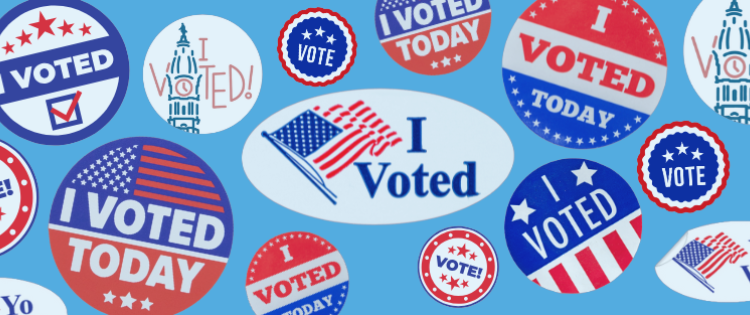Voting Rights, the SAVE Act, and Yet Another Executive Order: What Does It Mean?
In this harrowing time for federal politics, it is important for marginalized populations to be able to make their voices heard. However, a proposed federal law and an executive order seek to infringe on Americans’ access to voter registration, impacting those marginalized groups the hardest – affecting not only the transgender and gender non-conforming communities, but women, immigrant communities, people of color, low-income individuals, and people living in rural areas across the United States.
The SAVE Act
The Safeguard American Voter Eligibility (SAVE) Act, or H.R. 22, would dramatically heighten the requirements for voting in federal elections. The bill requires everyone to provide physical documentation of their U.S. citizenship in person at a government office in order to register to vote or update their voter registration information. An individual’s documentation – most often a birth certificate or U.S. passport – would need to reflect their current legal name for them to be able to register or update their information.
There are many issues presented by this bill. H.R. 22 would effectively ban automatic voter registration or registering to vote online, two of the most common ways people register. It would burden individuals living in rural areas who may not be able to travel in-person to a voting or election office to show their documents, or require them to travel hours just to ensure they are registered. Low-income individuals would need to leave or take time off work in order to appear in person at an office, weighing their financial stability with their constitutional right.
Additionally, not everyone has access to their identity documents – only 45-50% of Americans have U.S. passports, and about 21 million American adults do not have their birth certificates readily available. Individuals who don’t currently have access to these documents would need to navigate the often-complicated processes of the State Department and state vital records agencies in order to receive the documents. This barrier could severely impact naturalized citizens, people of color, low-income individuals, and people living in rural communities.
The bill would also directly affect transgender or gender non-conforming individuals. While we always encourage people to update their identity documents quickly after a legal name change, many people do not revise their documents immediately. Under the SAVE Act, they would be prevented from voting until their birth certificate or passport were updated. However, many in the transgender and gender non-conforming communities are deeply afraid to update or obtain a passport because of the cruel and transphobic policies of the Trump administration regarding passports.
However, the largest voting group to be affected by this bill would overwhelmingly be people who take their spouse’s last name after marriage. While many people (typically women) will take their spouse’s last name, birth certificates will generally reflect a person’s birth name. In those situations, a married person – and by far most often, a married cisgender woman – would be required to obtain a passport with their current legal name in order to vote. This means that around 69 million married women who have changed their legal name would effectively have their voting rights stripped from them overnight.
The Trump Administration’s March 25, 2025 Executive Order
The Trump administration is not only eager for these restrictions, it is seeking to impose them as quickly as possible. On March 25, 2025, the administration issued an executive order, titled “Preserving and Protecting the Integrity of American Elections.” The order attempts to impose changes to federal elections. It directs the Election Assistance Commission, an independent and bipartisan commission to support election officials, to make sweeping changes to election systems. Changes would include deadlines for mail-in ballots, replacing election equipment at a massive expense to states, and – most notably – requirements for individuals to prove their U.S. citizenship when they register to vote or update their information. Under the order, people would need to provide a U.S. passport or other government-issued ID.[1] Not even a birth certificate would suffice.
Election law experts have denounced the executive order and said that it is certain to be met with legal challenges. Article 1, Section 4 of the U.S. Constitution dictates that only Congress can make or alter the “time, place, and manner” of holding federal elections. A president does not have the ability or power to issue their own regulations regarding voting requirements. Sean Morales-Doyle, director of the Voting Rights Program at the Brennan Center for Justice at the NYU School of Law, said it plainly – “A whole lot of this is illegal.”
What Can I Do?
H.R. 22 will likely be heard in the U.S. House of Representatives within the next few weeks. Concerned individuals can contact their district’s representative and urge them to vote no on the SAVE Act and voice their disapproval with the Trump administration’s March 25, 2025 executive order.
Find your representative here: https://www.house.gov/representatives/find-your-representative
[1] The executive order states that a REAL ID, military ID, or government-issued photo ID could be used as long as it indicates that the holder is a U.S. citizen. However, federal law does not require REAL IDs to indicate whether a person is a U.S. citizen, and noncitizens may also be eligible for REAL IDs.

